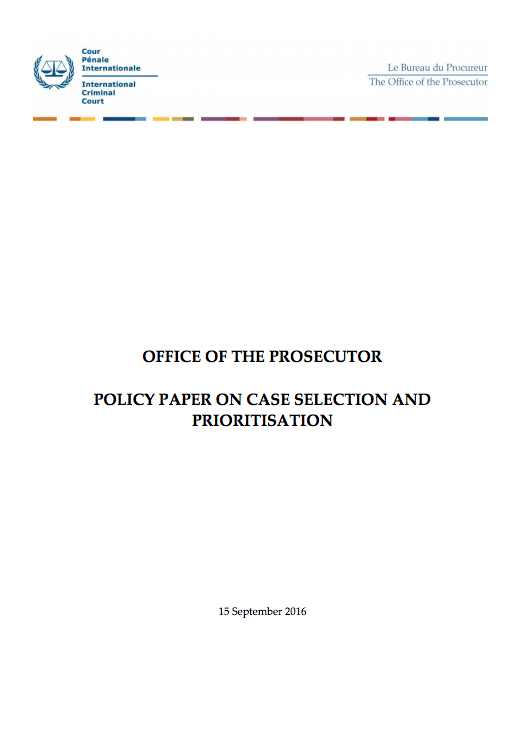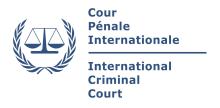The Prosecutor of the International Criminal Court ("ICC" or the "Court"), Fatou Bensouda, today, published a detailed policy document which provides guidance on how the Office of the Prosecutor exercises its discretion in the selection and prioritisation of cases. This paper complements the earlier policy document of the Office on Preliminary Examinations, which details the process for the opening of investigations into situations as a whole.
The Case Selection and Prioritisation Policy Paper was developed on the basis of the applicable legal framework and jurisprudence of the Court. It also draws upon the operational experience of the Office of the Prosecutor over the last fourteen years as well as the practice of other international and national courts and tribunals. Additionally, the Policy Paper has been enriched by a process of extensive internal and external consultations.
"With this Policy Paper we are equipping our Office with clear and transparent guidelines for the exercise of prosecutorial discretion in the selection and prioritisation our cases," stated Prosecutor Bensouda. "In accordance with the principles of independence, impartiality and objectivity, such decisions, are made on the strength of sound, pragmatic and fair criteria, which effectively and efficiently advance our mandate. In particular, the Policy Paper will assist the Office in the often difficult assessment of how to allocate its finite resources to the ever burgeoning demand arising from situations of mass atrocity," the Prosecutor added.
Finally, recognising that the criminality under investigation under the Rome Statute may have linkages with other crimes under national law, through this Policy, the Office commits to sharing, where appropriate, information and evidence with national authorities who are investigating or prosecuting the full range of international, transnational and organised criminal conduct.
By establishing clear and transparent criteria in accordance with the Office's legal duties and operational possibilities, this Policy Paper will serve as a key guiding instrument for the Office of the Prosecutor in its selection and prioritisation of cases for investigation and prosecution.


